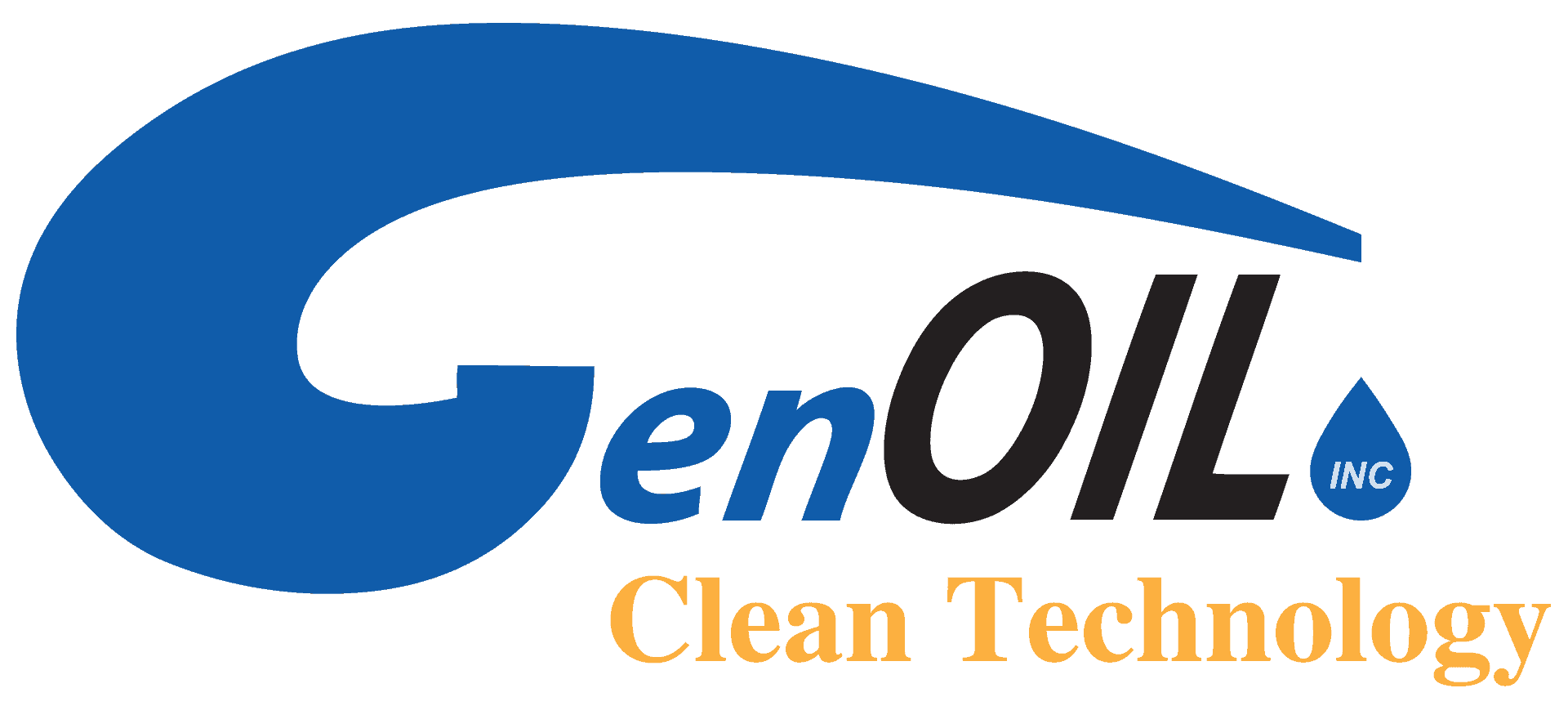Genoil Inc. is introducing a unique slop oil treatment system designed to achieve outstanding product quality, reduce operating costs and exceed the most stringent environmental requirements.
The system was devised primarily for the bilge water treatment technology developed by Genoil recently. Its aim is to treat slop oil and sludge recovered from bilge water or collected directly from ships. However, the system has numerous other applications, where treatment of slop oil/sludge is to be attained in the most efficient fashion.
Refineries around the world produce nearly ten million barrels of unusable oil each year. Add to that the annual worldwide well production of “Tank Bottoms/Sludge” which is a by product of the oil fields. Tank bottoms may also accumulate in tanks used for storage of fuels such as gasoline, fuel oil or diesel and jet fuel. There is no tank in the world without bottoms. This environmental problems associated present a severe costly disposal and treatment problem. Traditional methods use costly chemicals to treat this problem. Most oil goes untreated and is disposed of in waste pits scattered around the world. Some of these waste pits are extremely large and can exceed 250,000 barrels. Waste pits are known to contaminate local groundwater and cause unwanted health problems if found to contain Arsenic, Barium, Cadium, Chromium, Lead, Selenium and Benzene. All attempts to treat these tank bottoms use either chemical or thermal treatments resulting in a more unwanted water solid mixture left behind. This “Dead Oil” presents an even more difficult challenge. Genoil’s environmental rehab actually pays for itself.
Genoil has the most profitable and sophisticated self supporting slop oil treatment process in the world. Treating slop oil solves dangerous pollution and storage problems. All slop oils can be upgraded and mixed with crude oil to be processed in the refinery. Currently slop is an enormous burden to oil companies local communities and governments. Genoil’s R & D team has come up with a proprietary process which utilizes many new technologies working in conjunction with the Crystal Separator. Our process ensures efficient slop oil treatment and can upgrade many different types slop oil from oil fields, tanks, ponds, refineries and industry into valuable, marketable product. Genoil guarantees an immediate payback. Slop oils have tremendous variation in composition both chemical and physically. A common thread is that they contain both water and solid impurities, large and small. Often the oil and water form a very tight emulsion. Our process produces drinkable water and clean oil.
The first requirement of a profitable slop oil recovery system is the speed and efficiently that it can separate the three phases. The second is that it is works well enough to sever the closely bound emulsion and separate the smallest particles. The main characteristic trait of slop oil is that oil and water form an emulsion stabilized by ultrafine solids, extremely difficult to separate. Slop-oil or waste oil must go through purification in order to be used as fuel in waste oil fired boilers or incinerators, or be sold to refineries. Purification is carried out in several steps involving the removal of solids and water.
With reference to the block diagram, contaminated hydrocarbons of low value undergo treatment in truly innovative ways for obtaining a valuable product that can be sold as fuel or converted into naphta, lube oil and fuel oil in refineries.
The system features a preliminary step capable of separating oil, water and solids from slop oil or emulsified sludge. For example, sludge having the following content:
Oil: 20 – 30 % wt.
Water: 30 – 60 % wt.
Solids: 5 – 15 % wt.
is expected to typically have the following specs:
OIL PHASE:
Water content: < 2 ww %
Solids content: < 0,5 ww %
WATER PHASE:
Oil content: < 2 ww %
Solids content: < 1 ww %
SOLIDS PHASE:
Liquid content: < = 65 %
Preliminary three-phase separation is followed by further treatment of the resulting phases in order to enhance product quality, purify the water and safely dispose of solid impurities.
Thus, filtration occurs in two stages devised to reduce solids to 25 and 10 microns, respectively with specially designed filters. Periodic filter media replacement is eliminated with obvious advantages in terms of costs, downtime and maintenance.
When superior oil dryness is required, the system also includes an optional stage that dehydrates hydrocarbons to 500 mg/l water content. Furthermore, this stage is capable of reducing the particle count to ISO 14/12/9 cleanliness levels without utilizing any filters.
Water exiting the first stage contains about 2% oil, which is then completely removed in two separation steps. They employ Genoil’s Crystal and Crystalline units, respectively, technologies developed by Genoil after sustained efforts and research. As recent certifications attest, Crystal oily-water separator is capable of exceeding US Coast Coast/IMO MEPC 107 (49) requirements without filters, a unique feature of this technology. In order to reduce the oil content to 0 mg/l in the most exacting conditions the system comprises a polishing unit that also operates without filters. This arrangement is the only one capable of such outstanding performance in oil-water separation worldwide.
After complete oil elimination, water is processed in another stage for removing heavy metals, typically contained by sludge. An additional benefit of this step is the destruction of pathogens. As a result, the effluent exiting the water treatment plant is remarkably clean and can be disposed of without restrictions.
Solid residues resulted from three-stage separation are dehydrated and rendered chemically inert for cost-effective disposal.
Unique energy-saving solutions have been devised throughout the process in order to obtain the final product at the lowest price possible.
As a result of this combination of innovative solutions, performance and cost effectiveness, Genoil’s technology is unparalleled.
For ease of transportation and installation a standard plant of up to 7 m3/h capacity is accommodated in an acclimatized container. The system can be custom built to meet specific customer requirements. Further information can be made available upon request.
